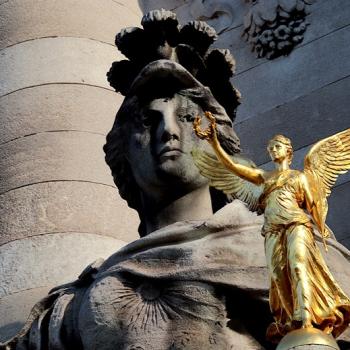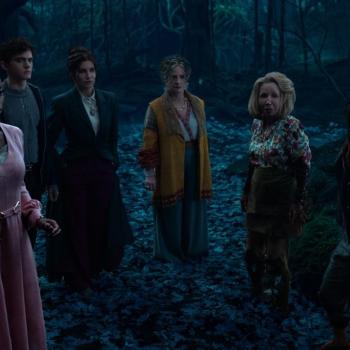At the turning point of the recently released “Wonder Woman 1984,” Steve Trevor notes that the Dreamstone being used by the film’s villains to make wishes come true is a version of the dreaded “Monkey’s Paw.”
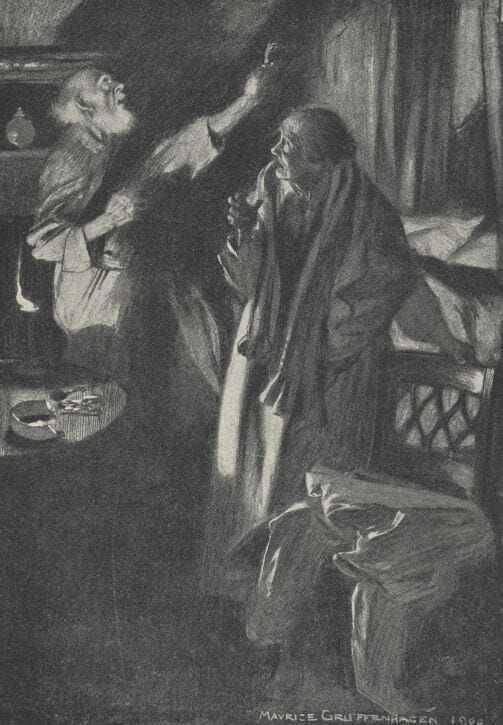
Since the film’s Steve Trevor was a WWI hero, it’s not surprising that he would immediately come up with that reference, as the short story by W.W. Jacobs had been published in 1902, and was immensely popular, with its first film adaptation in 1915.
Given the vast legacy of the monkey’s paw in popular occulture, it’s worth unpacking just how significant the trope is to fantasy and horror genres across multiple media. Further, teasing out the occult connections of the monkey’s paw concept reveals important details about the ethos of a film that attempts to critique the excess of the 1980s and offers us contemporary reflections of Trumpian America in the 2020s.
It’s a Twist of Fate
Even if you’ve never read the Jacobs story, chances are you’re thoroughly familiar with how it goes. A character or group of characters somehow get a hold of a magical object or talisman (sometimes it’s a genie) and are granted wishes. Inevitably the wishes are granted too literally, or there’s a catch, things go horribly wrong, and the protagonist has to wish to undo the wishes or the talisman gets passed on to the next unlucky recipient.
Even if the protagonists don’t learn their lesson, the audience does. The moral is clear: be careful what you wish for! In many cases, that moral can be adjusted to: be careful HOW you wish for the thing. In magick, whether it’s spells or wishes, the correct wording is vital.
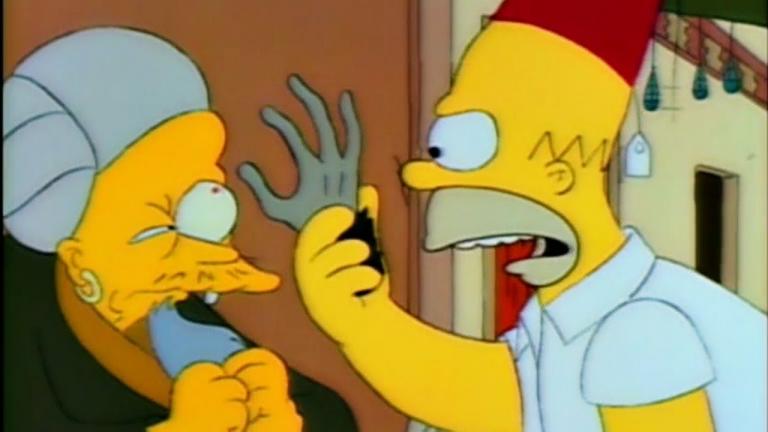
This idea is so pervasive in popular culture, it’s practically an ur-trope: it’s everywhere. From horror films, to cartoons, like “The Simpsons,” to comics, the story has been told in so many different permutations it’s practically impossible to keep track of it all.
Of particular note for occult tv fans, is “Forever,” the dark season 6 episode of “Buffy the Vampire Slayer,” in which Dawn uses magic to summon her mother back from the dead, similar to Stephen King’s “Pet Semetary” (itself a monkey’s paw variant). In the episode, Dawn realizes just in time that what is knocking on her door isn’t really her mother, or at least not her mother in any good form, and blows out the magic candle just before Buffy goes to let her in.
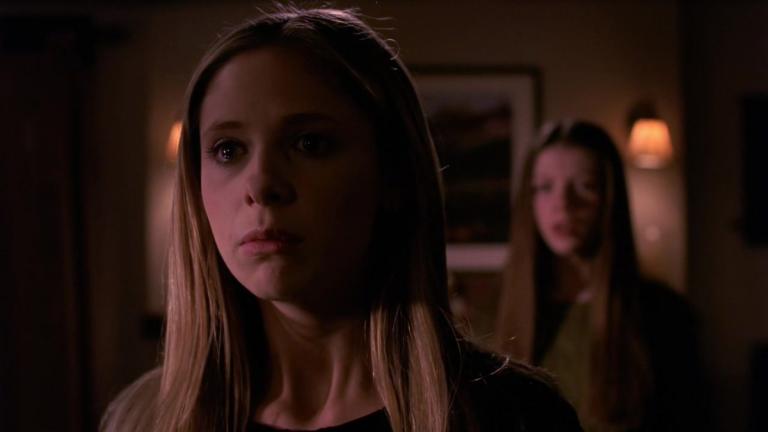
The episode’s writer, Marti Noxon, built on themes of deep grief and longing hinted at in Jabobs’ short story, and in fact, mirrors the action from the original almost exactly. In the story, Mr. White loses his son in an industrial accident as a result of the first wish on the monkey’s paw. His wife urges him to wish their son back, but he realizes in time that he has unwittingly brought his son’s walking corpse back and wishes him away before his wife can open the door.
In my early college years as I was getting into experimental music and performance, one of my favorite albums was Laurie Anderson’s “Strange Angels” (1989). The album’s second track is the humorous Calypso-inspired tune “Monkey’s Paw” with a chorus like this:
The gift of life it’s a twist of fate
It’s a roll of the die
It’s a free lunch A free ride
But Nature’s got rules and Nature’s got laws
And if you cross her look out!
It’s the monkey’s paw
It’s sayin: Haw haw!
It’s saying Gimme five!
It’s sayin: Bye bye!
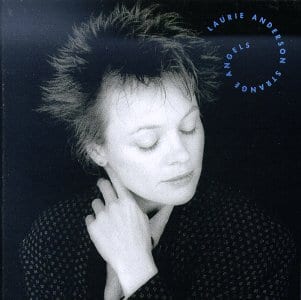
Here, Anderson plays with notions of vanity and desire, with the song’s narrator asking the man at the “body shop” to perform silly modifications, such as “stereo FM installed in my teeth,” “high-heeled feet” and to “take that mole off my back and put it on my cheek.”
In the context of “Strange Angels,” “Monkey’s Paw” is one of a series of messages about humanity and technology from otherwordly sources, such as angels, devils, mysterious voices on the airwaves (“Hiawatha”), and Walter Benjamin (“The Dream Before”).
Thus, Anderson’s album is firmly grounded in the 80s when technology, desire and excess were all coming together. And that brings us to “Wonder Woman 1984.”
Duke of Deception
In Patty Jenkins’ sequel to her wildly successful 2017 Wonder Woman film with Gal Gadot as the Amazon princess, the monkey’s paw of the film, the Dreamstone, isn’t just a side macguffin, it’s the main factor of one of the most ridiculous plots in superhero cinematic history.
And while your mileage may vary, I did find myself taken in by the earnest silliness of the film at times, even while my mind boggled at some of the terrible decisions with the writing and production. For instance, one of the main head-scratchers of the film is when using the dreamstone to bring back Steve Trevor, why the decision to bring him back in another man’s body instead of just resurrecting him? I get that magick needs a channel and all that, but the completely glossed over implications of Diana hooking up with and putting this man’s body in danger, all without his consent, and then having a meet-cute with the guy at the end of the film, flirting with him and pretending like she hasn’t been inside his apartment and shared his bed, felt particularly icky.
And that’s just the start of the problems this film has (messy Middle Eastern politics, cliché makeover and female competition tropes, the list goes on). However, since this piece isn’t necessarily a film review, I wanted to focus on some of the socio-political and occult implications the film attempts to explore.
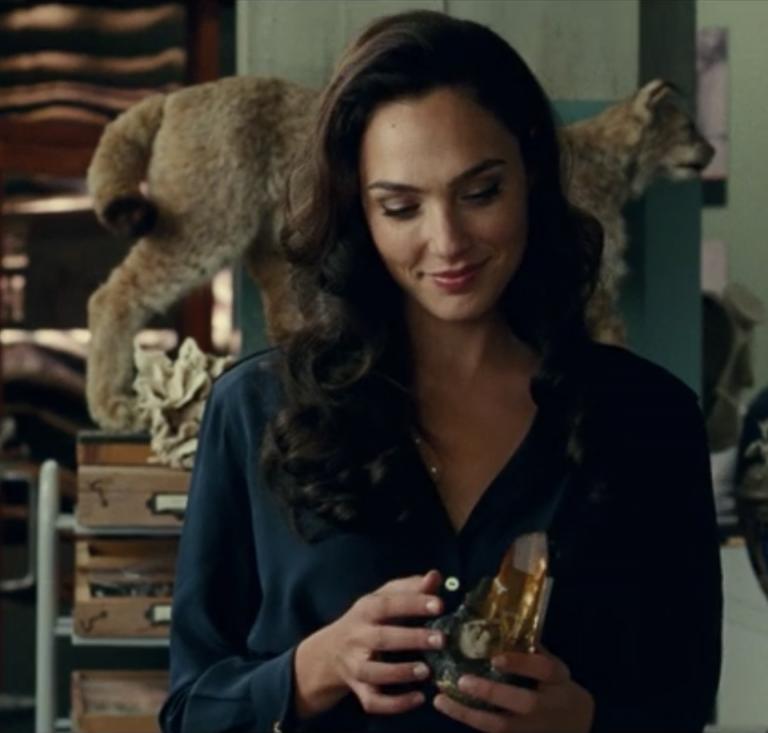
Starting with the Dreamstone itself and its comic origins, the object in the film doesn’t seem to be related the Dreamstone wielded by Doctor Destiny in one of the most disturbingly horrific issues of Neil Gaiman’s Sandman.
In an odd scene that practically lampshades its racial stereotyping, a “Mayan” (played by Indian-American comedian Ravi Patel) with a terrible dreadlock wig and goes by a Nigerian sounding name, who claims “most of what I know is past life stuff” helps the heroes identify the dreamstone.
We find out through ancient texts that Diana can conveniently read that the stone was created by a trickster figure with many names. One name that Diana throws out is the “Duke of Deception” who was an odd Golden-Age villain and ally of Ares, dating all the way back to the second issue of Wonder Woman in 1942. We find out that this wishing stone has caused chaos throughout known civilization and that its appearance always coincides with great catastrophes.
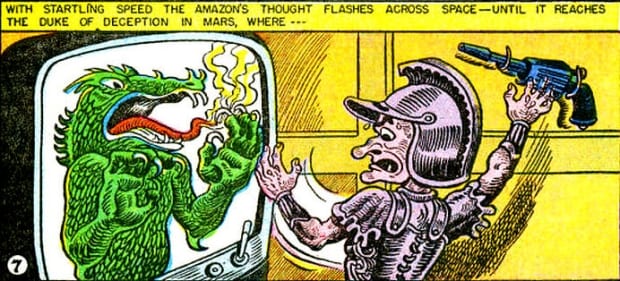
This scene in “Wonder Woman 1984,” with the vague otherness of its “ancient texts” presented by a wafer thin stereotypical character, highlights how early pulp fiction, adventure, and horror stories, and the comic books they influenced, were steeped in orientalism and exoticism.
The comic book versions of Cheetah (Kristen Wiig’s character), for instance, include a 1987 origin story in which Barbara Minerva is a White archaeologist who forces an African tribe to grant her immortality, then later a 2016 origin story in which an African plant god, Urzkartaga, curses Barbara. Throughout DC comics, in particular, superheroes and villains, such as Dr. Fate, Hawkman, Vixen, and Animal Man, all get their powers by run-ins with gods from African and Egyptian cultures.
The Monkey’s Paw story itself is surrounded with the trappings of colonialism. The talisman falls into the hands of Mr. and Mrs. White (intentional?) from a British major in the colonial empire and it was cursed by an Indian fakir. Even the above Simpsons episode takes part in the orientalism with a fakir character. Pulp fiction stories from the turn of the century were often steeped in anxieties around Eastern colonialism, with their attendant occultism. Stories like Richard Marsh’s popular 1897 novel “The Beetle: A Mystery” or Arthur Conan Doyle’s Sherlock Holmes were known for their exotic settings and racist, colonialist politics.
Perhaps stories like the Monkey’s Paw reflected fears that the colonized other would strike back through the realm of the occult. And perhaps superhero comics, and thus WW84, are a result of that unexamined legacy.
Yet there’s a further layer to unpack.
Anything You Dream Of!
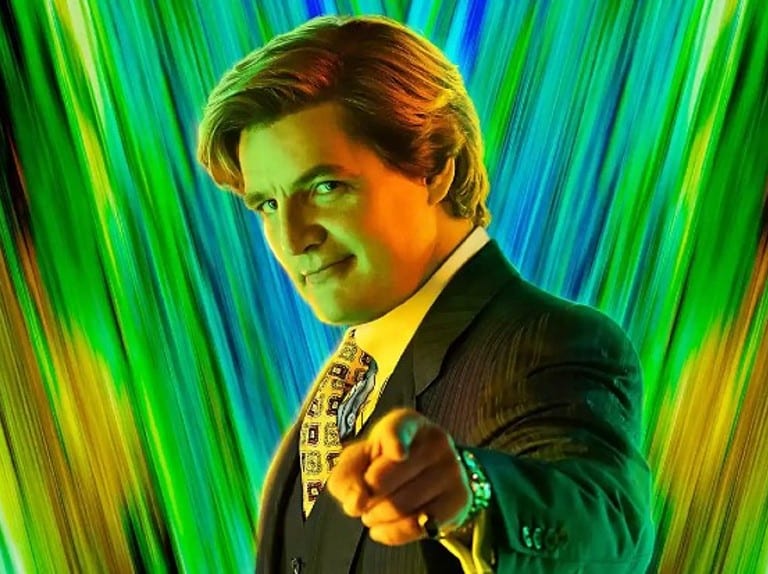
The villain, Max Lord, with his TV huckster taglines like “life is good, but it can be better” is the embodiment of 80s greed and glitz with no substance, over-promising and under-delivering – like another reality-show huckster who’s on his way out of the White House. And the comparisons to Trump don’t stop with the blonde coiffed hair and cheesy one liners.
The film delves somewhat into a specific trend that had strong adherents in the 80s: Norman Vincent Peale’s “The Power of Positive Thinking.” Published in 1952, this self-help book by Peale, an American minister and close friend of Richard Nixon, outlines a very clear “if you can dream it, you can do it” philosophy. Peale’s book was hugely popular and remains so today, having sold more than five million copies and translated into 40 languages. Peale encouraged his readers to remove all obstacles through positive thinking, imagining and then enacting success. He advocated a simple formula, based in religious faith: “prayerise, visualise, actualise.”
Peale’s legacy stretched into the 80s with figures like Tony Robbins and into the early 21st century with Rhonda Byrne’s best-selling 2006 self-help book, “The Secret.” We have Peale to thank for megachurches and the “gospel of prosperity.” Reaching beyond mainstream religion, practically the entire self-help industry owes a debt to Peale.
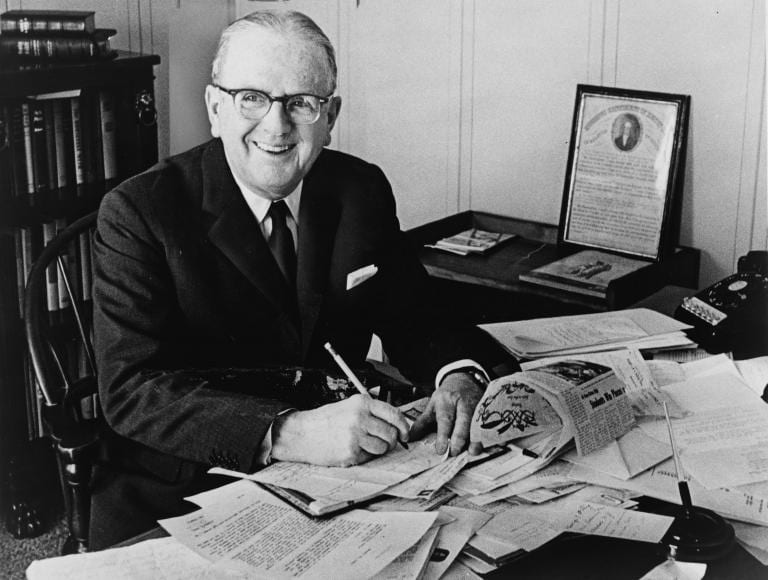
And another huge benefactor of Peale’s teachings: Donald J. Trump.
During the time WW84 was set, Peale was the minister at the Marble Collegiate Church on 5th avenue in Manhattan, which was frequently attended by Fred Trump and his family since the 1960s. Peale officiated Donald’s first marriage with Ivana and Trump claimed that Peale called him his greatest student.
It is from Peale that Trump learned that “attitude is more important than facts” thus leading to the “alternative facts” of the Trump administration and basically Trump’s entire raison d’etre, as he still denies that he lost the election in the final weeks of his term.
And while WW84’s supervillain is actually more redeemable than Trump, eventually reversing his wishes, it’s clear throughout the film that what guides him is the refusal to give up even when everyone is telling him that he’s finished.
Do What Thou Wilt
It is this very situation that tends to beg the question: isn’t a refusal to give in to obstacles a good thing? Shouldn’t we always strive for a positive attitude? Magickal practitioners especially are often told that a good spell or ritual working will only be successful if the practitioner keeps a positive focus and doesn’t sabotage the spell with negative thoughts. In fact, magickal training manuals are filled with rituals and spells to banish negative thoughts.
It’s no secret that “law of attraction” philosophies like “The Secret” have an obvious connection to historical occultism, from Madame Blavatsky’s “Secret Doctrine” in 1888 to Aleister Crowley’s thelema and countless practices and belief systems based on manifesting one’s thoughts into action. One might even say that manifestation like this is the entire basis of magick.

Yet so much of what Pagan and New Age practitioners have in common, along with Christian believers in the power of prayer, continually lies in tension between the poles of magical thinking and magickal practice. What’s the difference between deluding yourself and being a successful practitioner? I’d imagine that everyone’s answer would be unique.
We can’t deny some of the unfortunate consequences of Peale’s teachings and related philosophies. For instance, such thinking is responsible for what we today call “toxic positivity,” an especially virulent (pun intended) quality shared by people in mainstream religions and New Age adherents alike, particularly during the pandemic. And one of the more salient critiques of “the law of attraction” is that its implication that your problems are your own fault is a staggeringly privileged position.
We can note how strict adherence to the law of attraction can lead to extreme narcissism, as evidenced particularly by Trump and his cult following which, perhaps not as surprisingly as it should be, includes a significant New Age contingent, what has been dubbed “conspirituality.”
And lest we think that law of attraction followers are confined to one side of the political spectrum, let’s not forget that for a brief moment Marianne Williamson was considered a serious Democratic presidential candidate.
Be Careful What You Wish For
This brings us back to “Wonder Woman 1984,” the original “Monkey’s Paw” and what these stories are trying to teach us. Some critics have emphasized that the film reinforces the ethos of the superhero genre in which the superhero’s job is to ensure the status quo, as shows like “The Boys” tend to want to rub in our faces. What could be more tone deaf than telling everyday people in 2020 that wishing for a better world is a bad idea and they should be satisfied with how things are?
However, the extended flashback sequence at the beginning of the film establishes that when young Diana takes shortcuts and doesn’t earn her victories, she will not win, and indeed, she does not deserve to win. The implication, perhaps, is that focusing on winning for its own sake, rather than the principle of right action and fairness, is a losing proposition.
Thus, Lord’s shortcuts ultimately lead to disaster and his amplification across the world (as nonsensical as that plot point was) results in countless individuals making wishes based on their own selfish impulses, without considering the consequences. And while the instant redemption of Lord at the end of the film strains credulity, he has to transform from being selfish, narcissistic, and abusive through a grounded, emotional connection to his son.
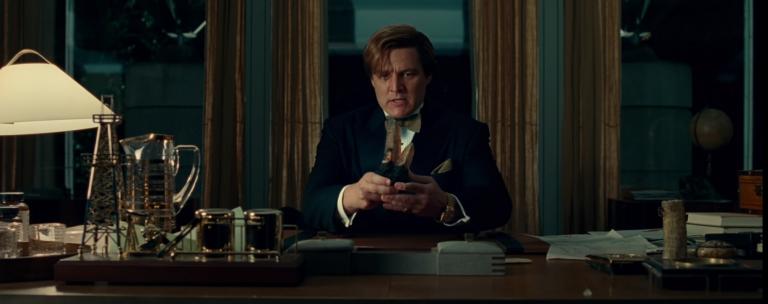
What “monkey’s paw” stories try to teach us, and in WW84’s case, somewhat clumsily, is to be wary of such individualistic focus, where one selfishly imposes one’s will over others, the world, even reality, and even when that intention may be benevolent.
For me, I think of alternative stories like “Lovecraft Country,” where one of the main lessons seems to be that the only way to responsibly use magic is do so collectively and with support from your community and your ancestors.
Not only do we need to do the hard work and eschew the shortcuts of wishes, we actually have to take others into account: our relationships and our communities, at home and across the globe. Perhaps that is exactly the message we need as we move ahead in 2021 and we try to re-establish our identity as a nation, rejecting the Trumpian “America First” method and once again cooperate with our allies against supervillains like the pandemic and climate change.






